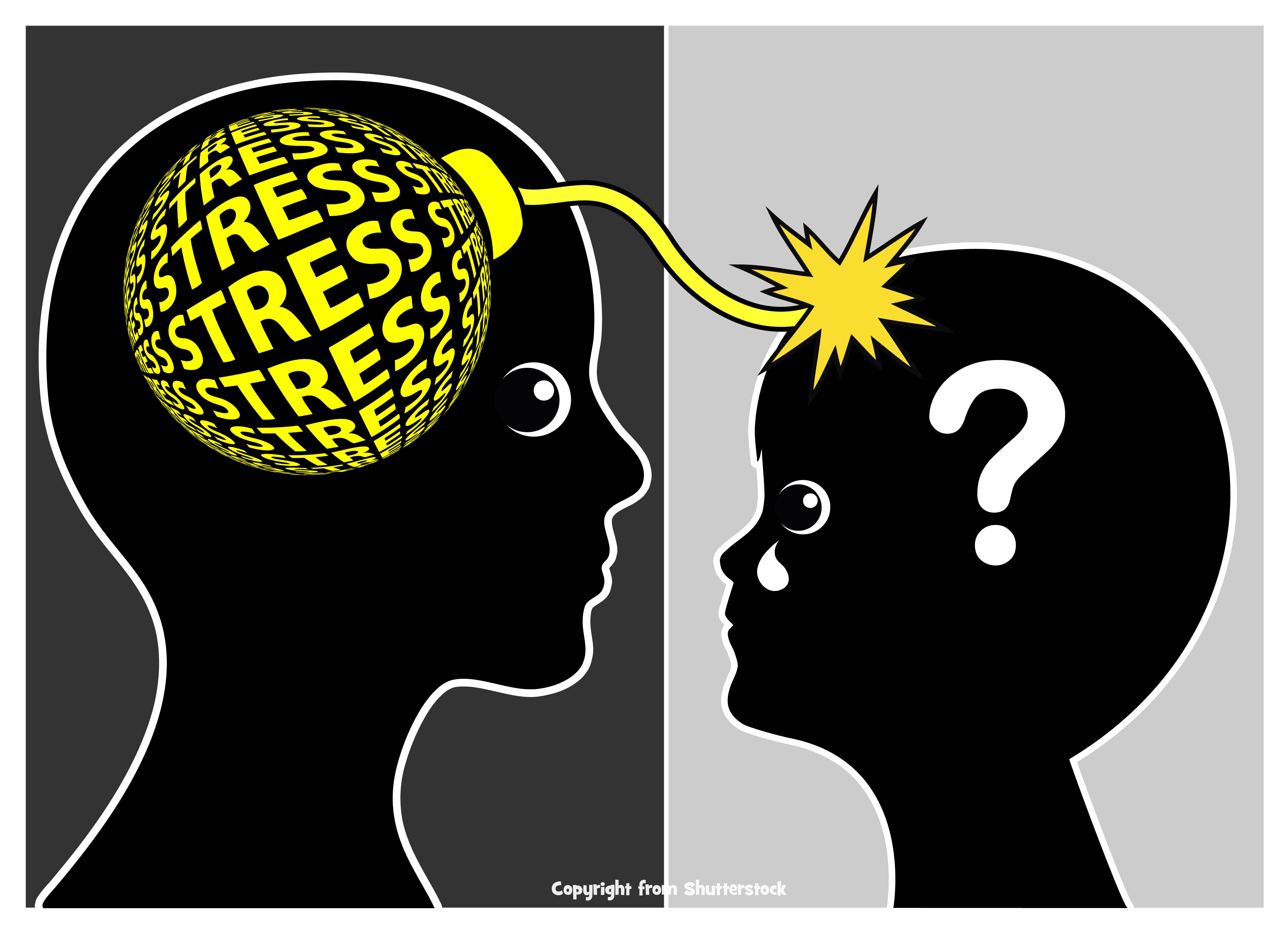
"It was hard for me to explain to them what was inside my head. I was afraid of losing a big game and disappointing my teammates; I was afraid I wouldn't meet my parents' expectations. I was afraid of failing in math test." says 13 years old Clint.
This may look like a very usual statement a kid can say about his day-to-day fears and worries. Occasional stress is an expected part of everyone's life. But let's not take it to that simpler side when a person or child suffers from extreme concerns and anxiety disorder. Many claims that their kids are in even worse situations and need medical help or assistance.
We think of childhood as a carefree and fun time. But the concept is narrowing down to a severe age of worries and more worries. This is absolutely a pressurized era for children, and sadly, they are barely coping up with it.
Parental pressures
Pressures from school
The competitiveness
Use of technology and mobile phones, not in a sensible and guided way.
Financial issues that bother the family
These all are very few reasons that can exacerbate the stress in them. The rate of anxiety affecting children has been on the rise since 2012. This is independent of any demographics.
According to NIH (National Institute of Mental Health), Young children may benefit from examination and treatment if they:
-Often talk about their worries and fears bothering them
-Complain about stomach pains or headaches often without any known medical cause.
-Having nightmares very often.
-Sleep too much or too little
-Difficulty in making friends and least interest in playing with them
-Experienced a recent decline in grades and performance
-Have repeated actions and are checking things over and over again, fearing if something terrible may happen.
-Intense irritability and frequent tantrums.
-Constant motion and unable to sit quietly
Mental well being of kids today
A wide range of mental and social instabilities have been cropping up since COVID19. Uncertainty, stress, self-isolation, and social distancing are all disrupting children's mental well-being either. Listen to them, and they might probably need help to cope up with it. Predictability is one major factor for stabilization, which has dysfunctions since the pandemic.
A practical and expertized stress management practice is necessary for a cohesive and comprehensive well being of kids and adults. The monotony of the new 'normals' indeed is one disturbing fact, and every drafted plan is on hold. In that case, children especially have got questions hitting their head. Anxiety, anger, loss of appetite, sleeping disorders, etc., will be evident.
Some of these primary symptoms call out for assistance or help:-
-Lack of sleep or persistent nightmares.
-Intense mood swings and outbursts
-Being sad, reserved, or unusually silent.
-Loss of appetite or considerably eating more.
-Social seclusion
-Irritability
-uneventful crying or violent episodes
Get the medical practitioner's assistance to follow the necessary steps to ensure children's mental well-being during the pandemic if they exhibit varied and unusual behaviors. Explain to them the reality that is happening around as a family emergency since they definitely will take it personally.
Help them to practice a healthy lifestyle.
Prepare your kids to deal with mistakes: Make them confident about their actions and stop worrying about making errors. Explain how people evolve and the importance of accepting things in life with immense love and compassion. Motivating them to keep going and try again each time they make a mistake would build confidence and assertive them.
Stop over-scheduling: Avoid packing up a lot of pressure on them. Piled up works and homework are not helpful; they only become more difficult for them to manage. Allow them to breathe easily. Understand their capabilities.
Make time for play: It is natural and healthy for kids to play, and nothing can replace playtime. Thinking playing hours have nothing to pay them off makes no sense. Kids need to play for their mental, physical and social development. (Read the article https://billionsurprisetoys.com/article-single?arid=37/PLAY+TIME+IS+POWERFUL, on the importance of playtime in children.)
Make sleep a priority: Evaluate their sleeping pattern and order. Children who get an adequate amount of sleep will have improved concentration, attention, learning, and overall mental and physical health. Lacking good sleep can seriously affect them.
Make warm and calm mornings for them: Let your kid(s) start a day with a lot more refreshing and calming thoughts. Take them for a morning walk, talk to them about the simplest happy things you see and experience, Shower love on them, and make them remember how much they are loved every single day!
Develop
a balanced and nutritional eating habit: Insist yourself to dine
together with everyone. Include a lot of fruits and vegetables in
meals, which can provide energy and vitamins. Remember, a healthy
body is essential for a happy, healthy, and active mind.
Believing
in your child(ren) and supporting them is vital. Please encourage
your child to face their fears, not to run away from them. Help them
find the strength within and tell them it's okay to make mistakes,
and it's normal being imperfect.
Remember, any situation of
stress and anxiety in children is curable. Pave a stress-free and
happy childhood for them. Activities like pebble meditation can help
children become calm and feel stress free.